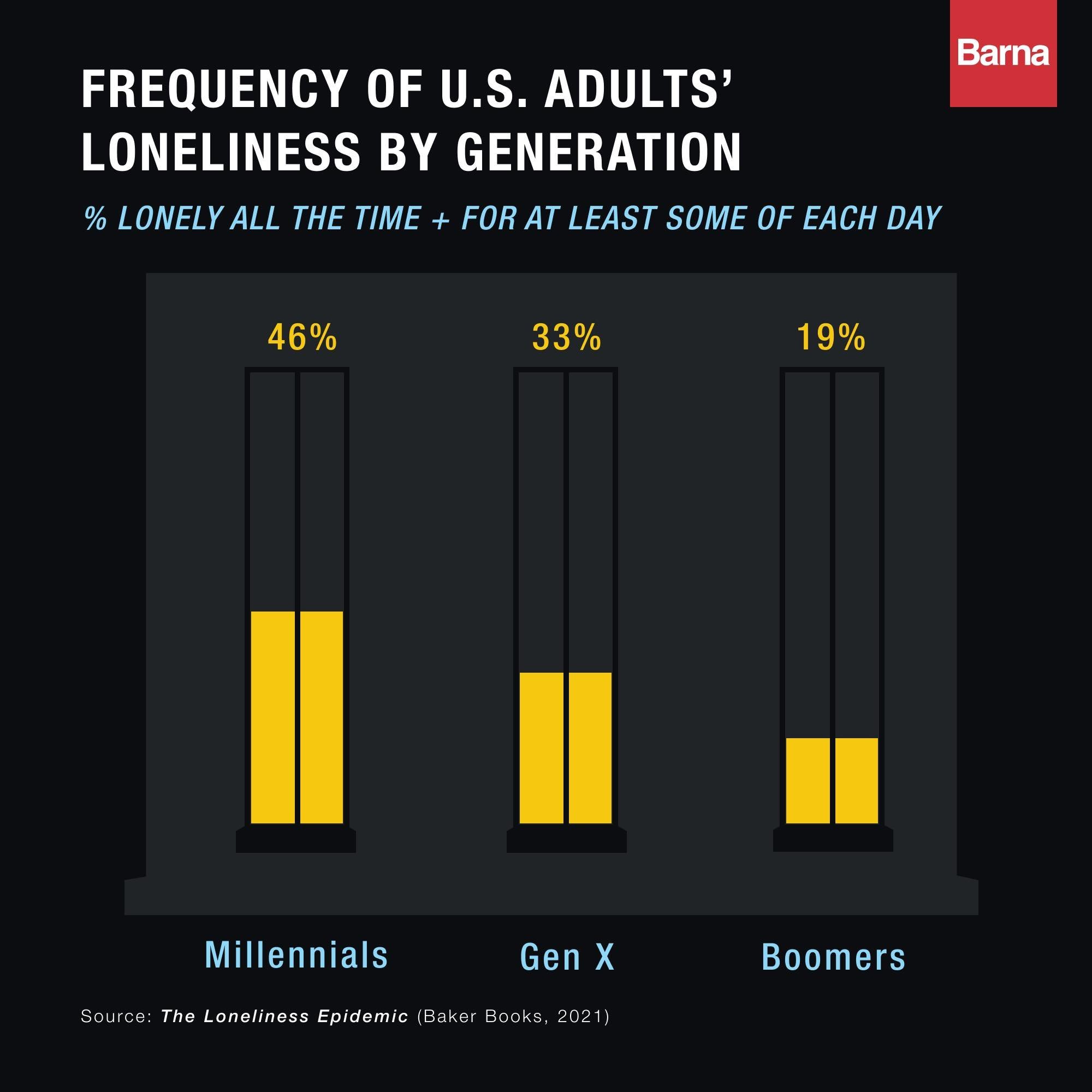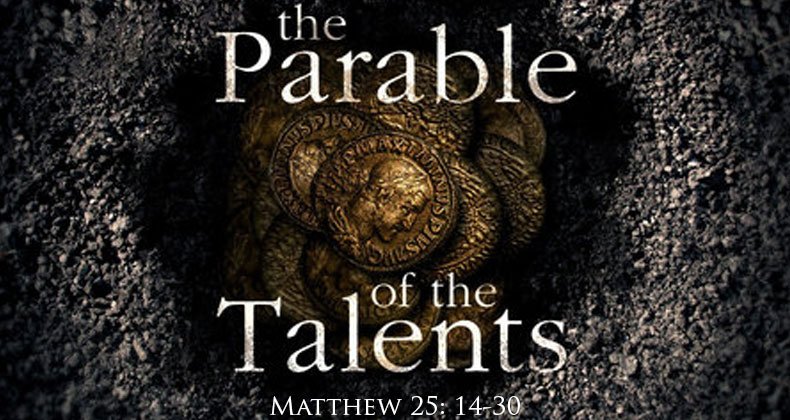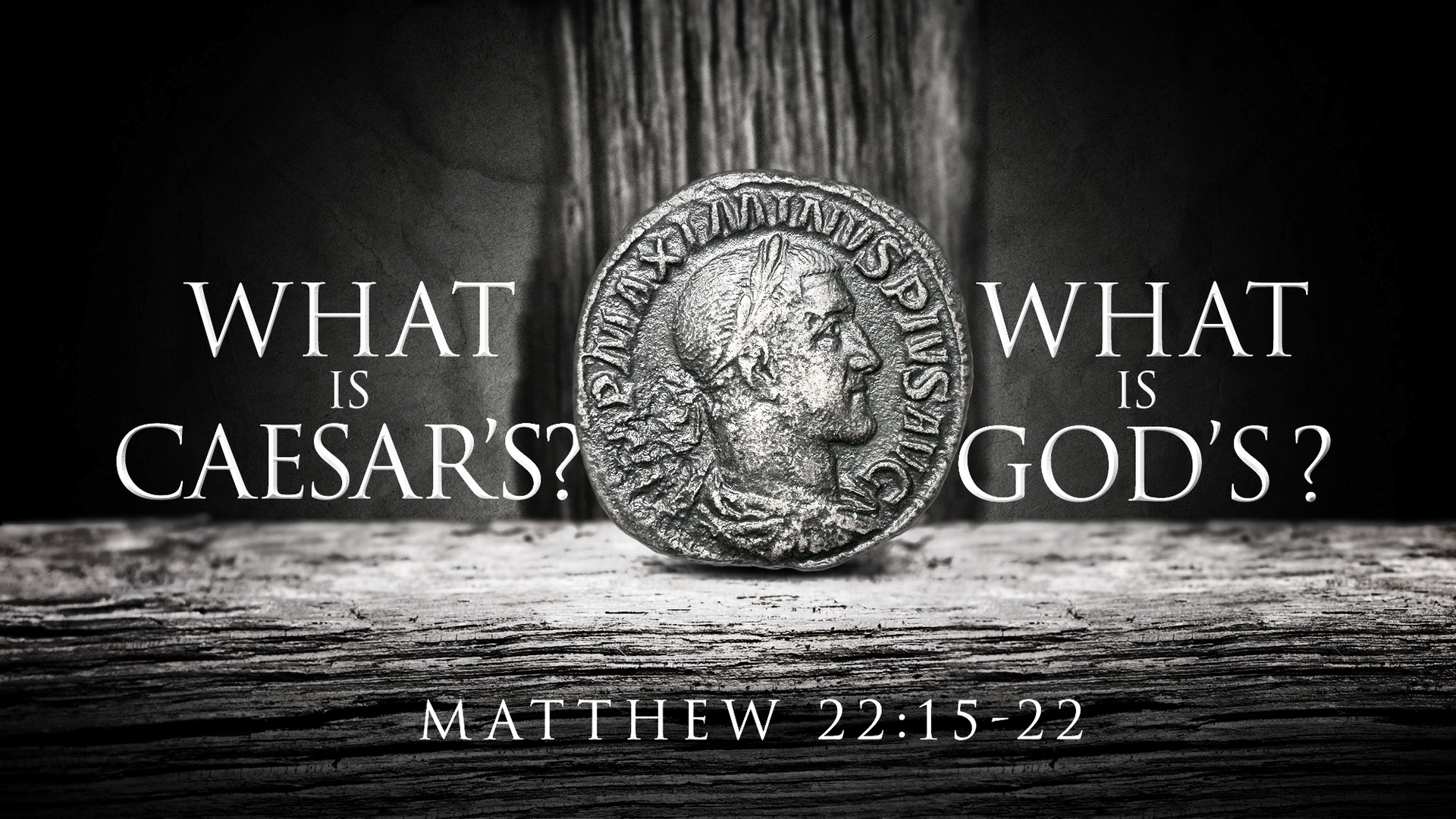
Following Jesus’ Call
What are the implications of following Jesus? Who does God call? What does God’s calling look like for us? Are we called to leave some things behind? Are we able to hold on to some things and follow Jesus?
When God calls us from something, he is also calling us to something.
Obediently following Jesus has consequences and real implications for our lives. However, God uses all of who we are to do the ministry he is calling us to do. While we may be called to leave some things behind, God also uses who we are, our personality, our vocation, our skill set, and our giftedness.

Listening for God’s Call
Do you hear God when he speaks to you? Are you listening to what God is calling you to do?
It has been said that “God is always speaking.” However, we do not always hear God when he speaks or listen to what God is saying to us or asking us to do.
This was the case with the boy Samuel. God was speaking in a time when God was not being heard. The Judges were ruling the land of Israel and people were sinful and far from obediently following and listening to God and God’s laws.
The First Book of Samuel says, “Now the boy Samuel was ministering to the LORD in the presence of Eli (the priest in the Tabernacle). And the word of the LORD was rare in those days; there was no frequent vision.” (1 Samuel 3:1, ESV).
When God spoke to Samuel, he did not understand that it was God speaking, because Samuel was not taught to listen to the word of the Lord, and he had not experienced God’s voice and calling. When God spoke, Samuel thought it was Eli speaking and not God.
The scriptures tell us, “Then the Lord called Samuel, and he said, ‘Here I am!’ and ran to Eli and said, ‘Here I am, for you called me.’ But he said, ‘I did not call; lie down again.’ So he went and lay down.” (1 Samuel 3:4-5, ESV).

Loneliness and Discouragement
Have you ever felt lonely, discouraged, or downcast? Are you feeling this way now?
The holiday season can bring up many emotions for people. For some, it is a time of joy and celebration. For others, it can be a time of loneliness, discouragement, and downheartedness.
Recent research from “The Loneliness Epidemic”, written by behavioral scientist Susan Mettes, shows that 19% of Baby Boomers report feeling lonely for at least some of each day. For Generation X, this number rises to 33%. And for the Millennial Generation, it reaches a staggering 46%. At baseline people are feeling lonely and disconnected.
While we may feel loneliness, feel discouragement, and feel downcast, especially during the holiday, we are not alone. God is with us. There are others who are experiencing, and who understand, what we are going through, because they are going through it too. We are not alone.
Through the Prophet Isaiah, God Promises: “The Lord will guide you continually, and satisfy your soul in drought, and strengthen your bones; you shall be like a watered garden, and like a spring of water, whose waters do not fail.” (Isaiah 58:11).

The Epiphany: Your Epiphany
Have you ever had an epiphany? What is an epiphany anyway? And what is the difference between any old epiphany and THE Epiphany?
An epiphany is a revelation, or a moment of insight, or an illumination, or a knowledge of something that you had not had before.
An epiphany can be simple, for instance, “I did not know this actor played in this Netflix series.” An epiphany can be profound and life changing, for instance, “I did not know I had a twin and that we were separated at birth.” Now that would be an epiphany!
The Epiphany, on the other hand, is the great manifestation of Jesus Christ to the Gentiles, observed by the church on January 6th.

Jesus: God’s Gift of Love
What gifts do you enjoy giving? What gifts do you enjoy receiving? What is the greatest gift ever given?
Most of us have given, and have received, good gifts. And most of us enjoy giving and receiving good gifts. God has given us the greatest gift of all by giving us his only son Jesus to save us from our sin and to give us his everlasting life.
When Jesus was about to be sent by God, the angel said to Mary, “Do not be afraid, Mary, for you have found favor with God. And behold, you will conceive in your womb and bear a son, and you shall call his name Jesus. He will be great and will be called the Son of the Most High. And the Lord God will give to him the throne of his father David, and he will reign over the house of Jacob forever, and of his kingdom there will be no end.” (Luke 1:30-33, ESV).
God gave His greatest gift ever, his only son, to all people, through Mary. Jesus is great and is a king forever in the line of David, Israel’s most admired king. Jesus’ kingdom lasts forever and has no end. (2 Samuel 7:1-17)

The Expectation of Joy
What are your expectations? Do you have great expectations for what God has in store for the future? Are you waiting expectantly for joyful resolve?
Hope and joy can be tied to our expectations. Managing expectations can be difficult. If we are aware and honestly reflect, we all have expectations of some kind. We wait hopefully with expectations of future joy.
The pessimist says the key to happiness is the management of your expectations. Actor Michael J. Fox once said, “My happiness grows in direct proportion to my acceptance, and in inverse proportion to my expectations” (Michael J. Fox).
Actress Sandra Bullock, got closer to the truth of expectations when she said, “False expectations take away joy” (Sandra Bullock). Which means, we should set our expectations on true and realistic expectations, like the truth of God’s word and God’s promises fulfilled.
In contrast to the pursuit of happiness, the follower of Jesus seeks great joy in the expectation of what God has in store for the future in ushering in his consummate joy in his advent. The follower of Jesus waits in expectation of the joy of God’s coming Kingdom and his restoration of all things.
John the Baptist anticipated God’s coming Kingdom in sending Jesus the Messiah, saying, “The one who has the bride is the bridegroom. The friend of the bridegroom, who stands and hears him, rejoices greatly at the bridegroom's voice. Therefore this joy of mine is now complete. He must increase, but I must decrease.” (John 3:29-30, ESV).

Preparing the Way for Peace
Are you preparing the way for the peace you need in your life? Is the pathway for peace in your life straight, level, and clear of any obstructions?
We all need God’s peace, and we can all cultivate the pathway for God’s presence and peace.
We can prepare the way for peace in our lives. We can make straight and level pathways for the peace and presence of God in our lives.
The good news of the gospel begins with Jesus Christ, the Son of God. “As it is written in Isaiah the prophet, ‘Behold, I send my messenger before your face, who will prepare your way, the voice of one crying in the wilderness: ‘Prepare the way of the Lord, make his paths straight,’” (Mark 1:1-3, ESV).

Waiting the Work of God
How much do we do the work in regard to our faith? How does God work on behalf of his people who are patiently waiting on him?
As followers of Jesus, we are called into the work of God; however, we have a God who works on our behalf. Our faith and salvation is based on what God has done and is doing. Our faith and salvation is not contingent upon our work or performance.
Waiting is difficult. Waiting on God to work on our behalf can be even more difficult. We desire control and strive anxiously to produce results by our own efforts and frenzied struggling.
The Prophet Isaiah spoke of God’s faithfulness to those who wait on Him, saying, “From of old no one has heard or perceived by the ear, no eye has seen a God besides you, who acts for those who wait for him.” (Isaiah 64:4, ESV).

Waiting on Hope
What are you waiting for? In this broken and fallen world, which is filled with all kinds of despair, are you waiting on hope to come?
Most of us are waiting for something. We are waiting on better days. We are waiting on change. We are waiting for things in life to improve. We are waiting on healing. We are waiting on wars to cease. We are waiting for sickness to end. We are waiting for the unknown to reveal itself. We are waiting on hope.
The Advent season is a time of patient waiting for the coming of Jesus, who is our hope.
The Proper Preface for Advent reminds us of the hope we are waiting on, declaring, “Because you sent your beloved Son to redeem us from sin and death, and to make us heirs in him of everlasting life; that when he shall come again in power and great glory to judge the world, we may without shame or fear rejoice to behold his appearing.” (Book of Common Prayer, 2019).

Who is King
Who or what is Lord over your life? Is it evident by the way you speak, act, and live that you have a Divine Ruler of your life, other than yourself? Is God your one true King, or is there another lord over you?
It has been said that you can tell who or what rules over someone by looking at their calendar and their bank statements. Where we spend our time and resources often reveals our allegiances.
In an idolatrous world and culture, we can wrestle with many “gods” or idols which fight for sovereignty over our lives. However, there is only one Lord and King over our lives.
The Psalmist writes, “Who is this King of glory? The LORD of hosts, he is the King of glory!” (Psalm 24:10, ESV).

Thanksgiving and God’s Will
What does gratitude have to do with the will of God? Can we be ungrateful and be walking in the will of God for our lives? Is a posture of thanksgiving essential to joy and obediently discerning and living out God’s perfect will?
Gratitude and God’s will go hand in hand. As followers of Jesus we are called to give thanks in all circumstances. Rejoicing, prayer, and thanksgiving is essential to living in God’s will.
The Apostle Paul spoke to the church in Thessalonica about living in the will of God, encouraging them by saying, “Rejoice always, pray without ceasing, give thanks in all circumstances; for this is the will of God in Christ Jesus for you.” (1 Thessalonians 5:16-18, ESV).
While rejoicing always, praying without ceasing, and giving thanks in every circumstance is challenging in a broken world, where many are ungrateful, or do not see all there is to be thankful for, followers of Jesus are called to this high standard, as difficult as it is. It is out of alignment with God’s word and design to be fully within the will of God and be ungrateful at the same time.

Christ the King
What does it mean that Jesus Christ is our king? What does it look like to be ruled and governed by God—our Good King? What does the Kingdom of God look like?
As followers of Jesus, we believe Jesus is our King and he will usher in his Kingdom in the world.
The early Israelites had no king in the days of the Judges, after the concurring and the settling of the promised land. The book of Judges tells us, “In those days there was no king in Israel. Everyone did what was right in his own eyes.” (Judges 21:25, ESV).
The people of God were to be ruled by the one true God in a theocracy, and not in a monarchy like the pagan nations around them.

Faithful in All Things
How is your faithfulness concerning the big things God is asking you to do? How about the little things? How are you being faithful with what God has given you?
As followers of Jesus, we are each called to be faithful in all things, even in the little things that God has given us.
In the Parable of the Talents in Matthew’s Gospel account, Jesus says the Kingdom of God is ”like a man going on a journey, who called his servants and entrusted to them his property.” (Matthew 25:14, ESV).
We have been entrusted to steward, or to manage, God’s property. We have been given a sacred trust to manage the resources of God in order to honor him and to advance his kingdom in the world.

Our Returning King
Are you ready for the return of Jesus? Are you encouraged that Jesus will return? Are you prepared for the return of Jesus and his coming kingdom?
Followers of Jesus should be encouraged that Jesus is returning.
We can be comforted with the truth of God’s presence with us, and his returning to us with his physical presence. We are and will forever be with the Lord.
Jesus is our present and returning King.
The Apostle Paul wrote the Thessalonian Church, saying, “For the Lord himself will descend from heaven with a cry of command, with the voice of an archangel, and with the sound of the trumpet of God. And the dead in Christ will rise first. Then we who are alive, who are left, will be caught up together with them in the clouds to meet the Lord in the air, and so we will always be with the Lord. Therefore encourage one another with these words.” (1 Thessalonians 4:16-18, ESV).

No More War
What does God think about unrest and war? What is God’s plan for war and for the nations?
God will judge the nations with his perfect justice. God will settle the disputes of every nation. God is a God of peace, and he intends to bring his peace to the nations. God’s will is to end all war for all of time.
Every instrument of war will become an instrument of cultivation in the hands of God’s kingdom agents who are working to participate in the restoration of all things.
The prophet Isaiah spoke of God’s restorative work, saying, “He shall judge between the nations, and shall decide disputes for many peoples; and they shall beat their swords into plowshares, and their spears into pruning hooks; nation shall not lift up sword against nation, neither shall they learn war anymore.” (Isaiah 2:4, ESV).

The Great Commandment
What does God require of us? What is the greatest commandment in God’s law? How should the follower of God live their life?
To live obedient and fruitful lives, we must love God and our neighbor. Jesus summed up the entire law this way, “love God and love your neighbor.” The greatest and first commandment is love God. The second greatest commandment is love your neighbor.
A Pharisee and lawyer sought to test Jesus, calling him “teacher,” and asking, “‘Which is the great commandment in the Law?’ Jesus said to him, ‘You shall love the Lord your God with all your heart and with all your soul and with all your mind. This is the great and first commandment. And a second is like it: You shall love your neighbor as yourself. On these two commandments depend all the Law and the Prophets.’” (Matthew 22:36-40, ESV).

Return
In what ways have you turned away from God and his commandments? How do you need to return to God?
When God feels far away from us, it is usually the case that we have turned away from God and his commandments.
When we are distant from God, we can regain intimacy with God by returning to him and by obeying his word.
In the Minor Prophet book of Malachi, God spoke to his people saying, “From the days of your fathers you have turned aside from my statutes and have not kept them. Return to me, and I will return to you, says the Lord of hosts. But you say, ‘How shall we return?’” (Malachi 3:7, ESV).

Responsibility
What belongs to the governing authorities? What belongs to God? As followers of Jesus, what should we give to the government and what should we give to God?
As followers of Jesus, we have a responsibility to the authorities and to the governing bodies who are over us, recognizing that it is God who has given us all things, it is God who has put government in place, and it is God who has given authority.
All things belong to God and God has given us all things.
This dynamic of giving the governing authority their due, while simultaneously giving God his due, is what Jesus was addressing when he was being tested by the Pharisees and the religious leaders in Matthew 22:15-22, when the Pharisees plotted how they would entangle Jesus in his words.

A Heavenly Celebration
What is it like for you to imagine heaven? Have you considered what God’s Kingdom will be like? Are you confident you have an invitation to join God in his Kingdom? Are you making preparations to join the heavenly feast?
Most of us do not regularly consider heaven. We certainly do not make preparations for the life to come when we are so consumed by this life and our present cares and concerns.
In Matthew’s gospel account, Jesus told a parable of the Kingdom of God, saying, “The kingdom of heaven may be compared to a king who gave a wedding feast for his son” (Matthew 22:8-10, ESV).

The Wicked Tenants
Do you see yourself as a tenant in God’s vineyard? What kind of tenant are you? Are you a good tenant? Are you a faithful tenant? Does God get his due?
In the Parable of The Wicked Tenants in the Vineyard, Jesus tells a story of a man who planted a vineyard and leased it out to tenants with the expectation they would cultivate the vineyard and pay him some of the fruit at harvest time.
The wicked tenants in the vineyard refused to give the owner of the vineyard his fruit and killed his servants whom he sent to collect payment, not once, but several times.
Matthew’s gospel account tells us, “Finally he sent his son to them, saying, ‘They will respect my son.’ But when the tenants saw the son, they said to themselves, ‘This is the heir. Come, let us kill him and have his inheritance.’ And they took him and threw him out of the vineyard and killed him.” (Matthew 21:37-39, ESV).